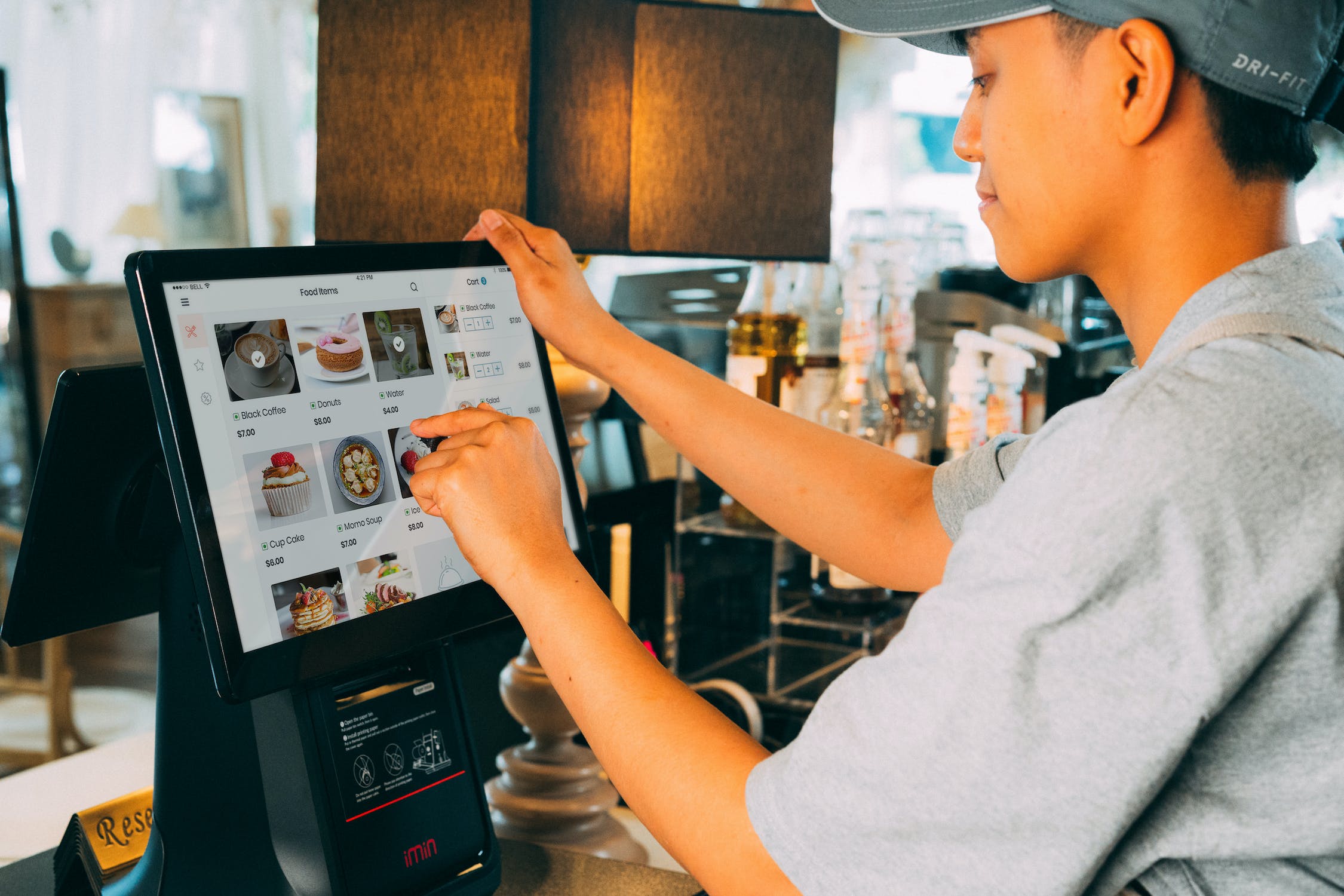
- September 21, 2023
- Innomax
- 0
Are you looking to hire a web developer in India to build a POS (point of sale) for your outlet? Make sure that your web developer should add some of the most important features to your POS web application.

#1 User-Friendly Interface:
A web application’s success often depends on its user interface (UI). Therefore, your POS system should have an intuitive and easy-to-navigate interface that minimizes user errors and reduces training time.
#2 Inventory Management:
A well-designed inventory management system is essential. Your web developer should create features that allow for real-time inventory tracking, reorder alerts, and reporting.
#3 Sales Analytics:
Implement robust sales analytics to help businesses gain insights into their performance. Create features that generate sales reports, analyze trends, and visualize data for informed decision-making.
#4 Payment Processing:
The core function of a POS system is payment processing. Therefore, your POS web app builder should ensure that the application supports various payment methods, including credit cards, debit cards, mobile payments, and cash. It should also handle split payments and tipping in the case of restaurants.
#5 Customer Management:
Effective customer management features should enable businesses to create and manage customer profiles easily. This can be a valuable tool for targeted marketing and personalized customer service.
#6 Receipt Customization:
Customizable receipts allow businesses to add their branding, contact information, and promotional messages, leaving a lasting impression on customers.
#7 Employee Management:
For businesses with multiple employees, a web application should include features for tracking hours worked, managing access levels, and generating payroll reports.
#8 Barcode Scanning:
Barcode scanning simplifies the checkout process, reduces errors, and speeds up transactions. Ensure that the POS system supports barcode scanning functionality.
#9 Offline Mode:
Even in the absence of a stable internet connection, the POS system should function seamlessly. Transactions made in offline mode should sync automatically when the connection is restored.
#10 Security Features:
Security is paramount in any POS web application. Implement features such as end-to-end encryption, PCI compliance, and user access controls to safeguard sensitive customer data and financial information.
#11 Multi-Location Support:
Businesses with multiple locations need features for centralized management. Your developer should create tools for monitoring inventory, sales, and employees across all locations from a single dashboard.
#12 Loyalty Programs:
Loyalty programs are an effective way to retain customers. Make sure that your POS developer has integrated features that allow businesses to create and manage loyalty programs, track rewards, and provide discounts to loyal customers.
#13 Vendor Integration:
Seamless integration with other software and platforms is vital. POS systems should be able to connect with accounting software, e-commerce platforms, and third-party services such as delivery apps.
#14 Mobile Accessibility:
In an increasingly mobile world, access to the POS system on mobile devices is essential. Ensure that the application is responsive and user-friendly on various screen sizes.
#15 Customizable Permissions:
Not all employees require the same level of access. Incorporate features for customizable permissions to restrict access to specific functions and data, enhancing security.
#16 Tax Calculation:
Taxes can vary by location and change over time. The POS system should accurately calculate taxes based on the business’s location and current tax laws.
#17 Cloud-Based Backup:
Regular data backups are essential. The POS developers should include cloud-based backup features to ensure data is securely stored off-site, and ready for recovery in case of hardware failure or other issues.
#18 Scalability:
As businesses grow, the POS system should scale seamlessly. It should handle an increasing number of products, transactions, and users without performance bottlenecks.
#19 Customer Support:
Responsive customer support is crucial for addressing issues and inquiries promptly. Web developers should offer multiple channels for customer support, including chat, email, and phone support.
#20 Reporting and Analytics:
Beyond basic sales reports, the POS system should provide in-depth reporting and analytics features. These tools can help businesses identify trends, optimize pricing, and make data-driven decisions.
#21 Updates and Maintenance:
A POS system is not static; it requires regular updates and maintenance to stay current with industry standards and security requirements. Ensure that the web application offers ongoing support and updates.


